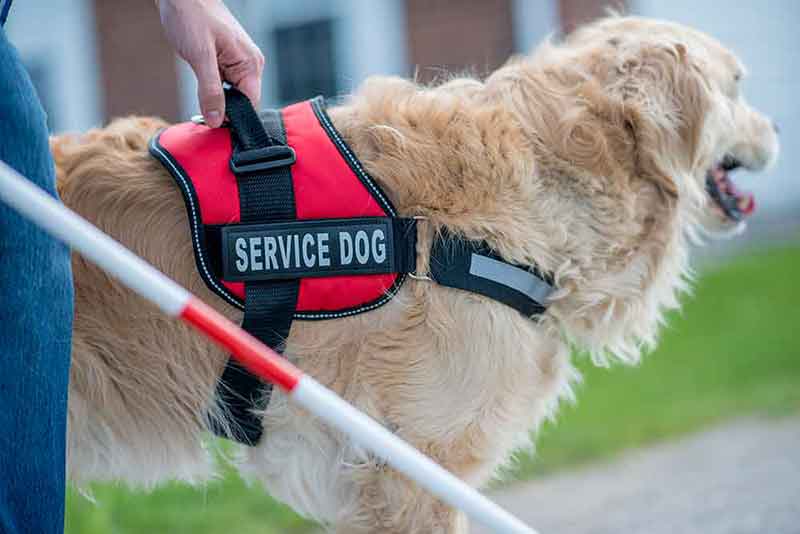Blog
The Privileges and Protections of Service Animals and Their Handlers
 Animals have certainly earned their place as some of our most trusted confidants and allies, but many dogs provide their human companions with much, much more. In fact, service animals (typically dogs) are equipped with life-saving skills to help their handlers. These highly-trained animals are simply amazing at their jobs!
Animals have certainly earned their place as some of our most trusted confidants and allies, but many dogs provide their human companions with much, much more. In fact, service animals (typically dogs) are equipped with life-saving skills to help their handlers. These highly-trained animals are simply amazing at their jobs!
Groundbreaking Legislation
In 1990, the Americans with Disabilities Act (ADA) was signed into law. As a result, state and local agencies, businesses, and nonprofit organizations were required to make reasonable modifications to accommodate – and even benefit – people with disabilities. Even establishments with strict “no pet” policies were no longer able to ban service animals. However, the ADA prohibits people from asking for proof of training or certification.
The Fine Print
As defined by the ADA, service animals are those trained to perform certain tasks for individuals with disabilities. They can be any breed, age, or color. You may see any of the following types of service animals in public:
- Seeing eye or guide dogs
- Hearing dogs
- Diabetic alert dogs
- Animals that detect seizures and know how to seek help
- Psychiatric service animals (PTSD, anxiety, depression, etc.)
- Autism support animals
- Allergy detection dogs
Unlike service animals, the following animals are beneficial but are not protected under the ADA:
- Therapy animals – These animals can be extremely helpful to kids, the elderly, and people in hospitals. Employed to help relieve stress and boost happiness and wellbeing, therapy animals are typically well-trained.
- Emotional support animals – These companion animals may be recommended by medical professionals to help those with certain emotional or mental disabilities. They’re not allowed in restaurants, but they can travel on planes and live in housing units that otherwise do not allow pets.
But Wait!
Unfortunately, while the ADA defines what a service animal is/isn’t, it does not dictate requirements for training, registering/licensing, or documentation. In a way, this loophole enables many imposters.
Pets who pose as service animals lack the extensive training that’s required to save or assist people with disabilities. They can be disruptive in public, and they indirectly delegitimize real service animals.
Protecting Service Animals and Their Handlers
Many states have laws that punish people who attempt to pass off their pets as service animals. The bottom line is that many people with disabilities depend on service animals and deserve to have their rights and privileges protected.
It’s always an honor to see these working animals in action. Remember, service dogs should never be distracted from performing their job duties!
If you have any questions about these amazing animals, please give us a call. Our friendly veterinarians and staff are always here to help!
